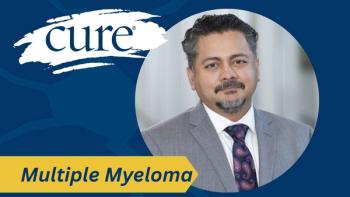
Anne Quinn Young, of the MMRF, Discusses Immunotherapies Being Studied in Multiple Myeloma

Anne Quinn Young, of the Multiple Myeloma Research Foundation, discusses some of the antibodies that are being studied in multiple myeloma.
Anne Quinn Young, Vice President of Development and Strategic Partnerships for the Multiple Myeloma Research Foundation, discusses some of the antibodies that are being studied in multiple myeloma, including elotuzumab, which is in phase 3 clinical trials. "We've studied that in different combinations through our research consortium in the frontline setting, as well as the relapsed and refractory setting," she says.
"A new class called anti-CD38 antibodies—there are two being presented at this meeting that there is a ton of excitement around," she says. "One of them is called daratumumab and the other is called SAR650984. These two agents by themselves in phase 1 studies were showing response rates in patients who had failed everything available and yet responded to these."
When you combine these new agents with the standards of care in multiple myeloma, there is hope that the response will be even greater.
Studies with SAR650984 were announced at the 2014 annual meeting of the American Society of Hematology. "We're expecting to see response rates of upwards of 50 percent, which again in this population is absolutely unheard of," Quinn Young says.
"What we're really excited about is the impact they can have not only for patients who have failed everything, but what happens when you start to move these earlier in the course of treatment? What kinds of dramatic results can you have that really delay disease progresson for perhaps years."




